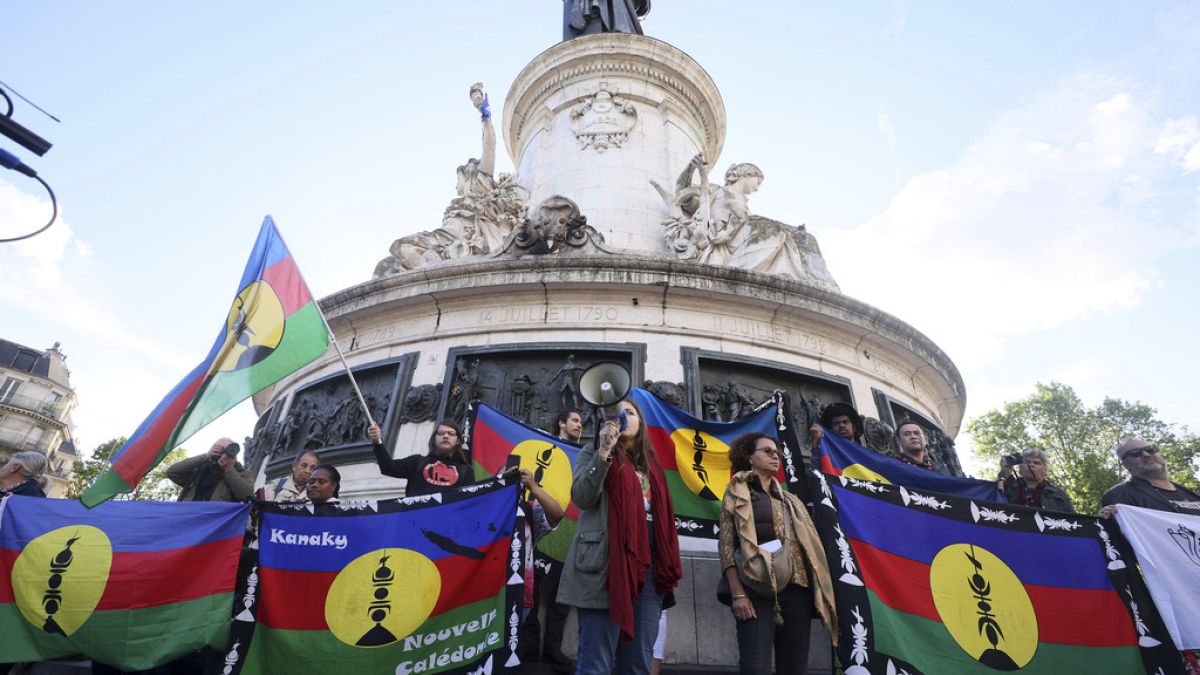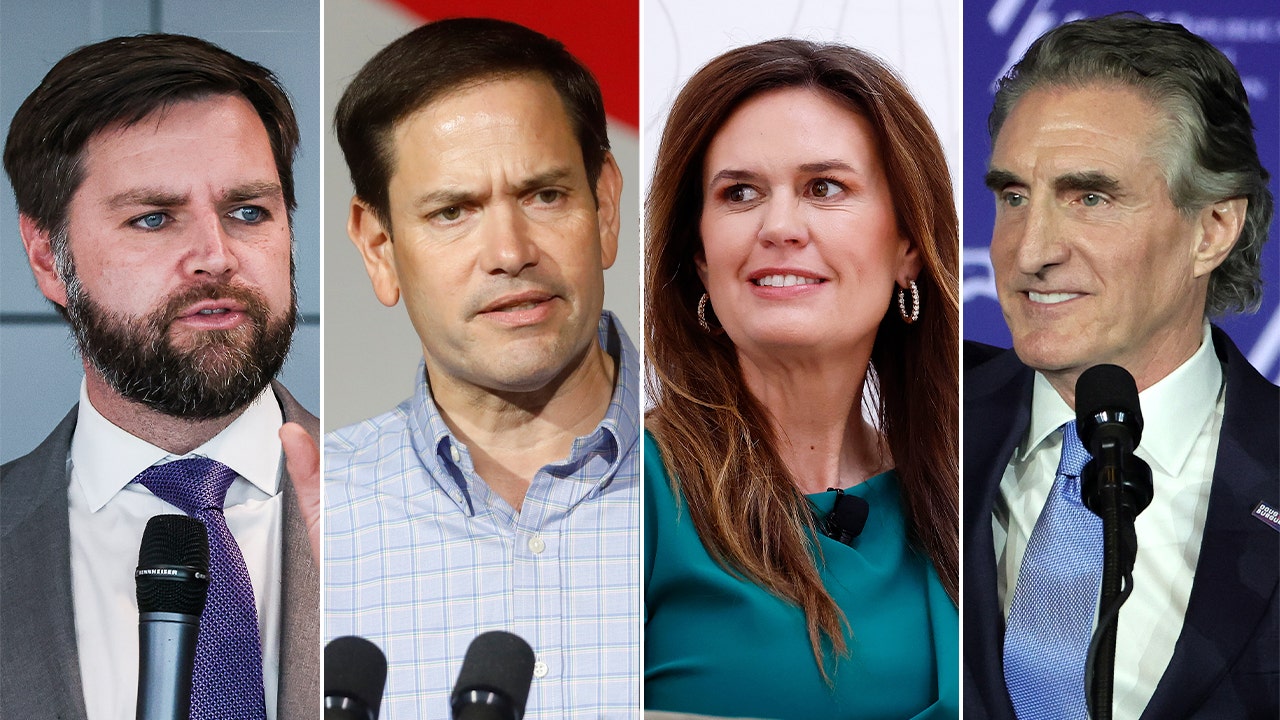Montana
Montana could be a model as more GOP states weigh Medicaid work requirements • Stateline

Two decades ago, Jeff Beisecker and his family returned to Great Falls, Montana, from a religious mission to the Philippines. Beisecker had no health insurance and no steady source of income, and neither did his wife. Fearful of being without coverage, Beisecker enrolled himself, his wife and their four children in Medicaid for nearly a decade while he worked his way to a steady, full-time job.
Having the extra help made a difference for his family, recalled Beisecker, 53. “And people might have looked down on us. I don’t really care, because it was there to help us along the journey.”
For Beisecker, Medicaid coverage was a launching pad to stable work; now he helps others make that leap. As an employment and training coordinator for Opportunities Inc., a Great Falls-based nonprofit, Beisecker connects Montana Medicaid recipients to job training, career counseling, transportation and child care. Opportunities Inc. is one of several nonprofits that run a state-created voluntary program called the Health and Economic Livelihood Partnership Link, known as HELP-Link.
“When folks come in, we can meet with them and say, ‘Hey, maybe you can take this training that we can help pay for, and you can come out and start making 28 or 29 dollars an hour,” Beisecker said.
An increasing number of Republican-led states want to require Medicaid recipients to work, arguing that doing so will help them rise out of poverty. Democrats and health advocates note that most people on Medicaid already work either full time or part time. They argue that states shouldn’t deny health care coverage to people who don’t have jobs, especially since many face serious barriers to employment.
With HELP-Link, Montana might have found middle ground.
Holdout states consider expanding Medicaid — with work requirements
When Montanans enroll in Medicaid, nonprofit organizations such as Opportunities Inc., which receives state funding, can offer career guidance and job training from professionals like Beisecker. A key part of that process is identifying barriers to work — such as a lack of training, child care or transportation — and finding ways to overcome them.
“There are ways to support work without taking away people’s health coverage,” said Joan Alker, executive director of Georgetown University’s Center for Children and Families, which researches health care issues.
“Montana is the most concrete example of a work-support connection,” she said. “That’s one place to look to make sure people are connected to work supports and job training.”
Montana Republican state Rep. Edward Buttrey, who crafted the HELP-Link program with Democratic state Rep. Mary Caffero in 2015, said it adheres to GOP principles.
“Republican administrations typically want to ensure that if somebody’s getting a benefit from the taxpayers, that they’re earning it and in return providing a benefit back to the state and themselves,” Buttrey told Stateline. “I think that’s what this is about.”
Caffero said that in reaching a compromise, legislators “put the people of Montana above party politics.”
“We created our own majority,” she said, “and extremists were kind of out on a plank.”
Increasing interest
Medicaid is a program that provides health insurance for low-income people and is jointly run by states and the U.S. government. Any state that wants to add a work requirement to Medicaid must ask the federal government for permission.
Grassroots groups help Medicaid recipients regain lost coverage
The Biden administration has repeatedly turned down states’ requests to impose work requirements. It also has rescinded the approvals granted by its predecessor, which signed off on 13 of them. (Only one state, Arkansas, implemented its rule before courts blocked states from imposing them.) But with the election fast approaching, the prospect of a second Trump administration has prompted more GOP states to reconsider the idea.
That includes states such as Arkansas, Idaho and Louisiana that opted to expand Medicaid to more people under the Affordable Care Act, commonly known as Obamacare. It also includes states that are still debating whether to expand Medicaid under Obamacare, among them Kansas and Mississippi.
Georgia and South Carolina, neither of which has expanded Medicaid under the ACA, both have sought federal permission to include work requirements in partial expansions of Medicaid that are more limited than what is envisioned under Obamacare. Only Georgia, which is fighting the Biden administration in court, currently has a strict work rule for any of its Medicaid enrollees.
How it works
Montana, which expanded Medicaid during the Obama administration, in 2019 sought federal permission to apply work requirements to the roughly 100,000 adults who were newly eligible for the program. Under the proposal, beneficiaries would have had to work at least 80 hours each month, be looking for a job, or be doing volunteer work. There would have been exemptions for pregnancy, disabilities and mental illness.
In 2021, however, the Biden administration rejected Montana’s request. Buttrey told Stateline that if former President Donald Trump wins in November, it is likely that Montana will try again. But whatever the outcome of the election, the voluntary workforce training in HELP-Link has emerged as a possible compromise.
Beisecker said that Opportunities Inc. has been working with the Help-Link program for about a year and a half. The nonprofit has been able to help people do things such as get a commercial driver’s license, start a welding certificate program, take classes on medical coding, and join construction training programs.
When folks come in, we can meet with them and say, ‘Hey, maybe you can take this training that we can help pay for, and you can come out and start making 28 or 29 dollars an hour.
– Jeff Beisecker, employment and training coordinator for Opportunities Inc., a Montana nonprofit
The nonprofit also has a community resource center that can help Medicaid recipients get access to vouchers for food, laundry facilities and other needs.
“We get referrals from other nonprofits we work with,” Beisecker said. “We have flyers that we send out so people know about the program. We go to job fairs.”
According to data from the Montana Department of Labor and Industry, more than 2,200 people have participated in the HELP-Link program since its inception. Many have gone on to get jobs as registered nurses, dental hygienists, real estate agents and computer programmers, among many other professions.
HELP-Link has built relationships with large local employers such as manufacturers and health care providers, said Heather O’Loughlin, executive director of the Montana Budget & Policy Center, a nonprofit group that examines budget and tax issues. O’Loughlin said a dip in participation since 2021 is evidence that the program has moved many participants into stable jobs.
Caffero, the Democratic lawmaker, agreed.
“The program was doing exactly what we intended. People get jobs and jobs with benefits, jobs where they make a living wage, because they have education and training through HELP-Link,” she said. “That’s the goal. We don’t want the [Medicaid] rolls to go up.”
Buttrey noted that prior to the pandemic, Montanans stayed on Medicaid for an average of less than two years. “We’ve given people some job skills,” he said. “We’ve gotten them preventative care and help with addiction.”
Despite federal warnings, red and blue states aggressively cull Medicaid rolls
Robin Rudowitz, who oversees Medicaid research at KFF, a nonpartisan health research organization, praised Montana’s program for encouraging people to find a job — and get off government assistance — without denying them health care while they do it.
She contrasted HELP-Link with the strict work requirements Arkansas briefly had in place for Medicaid recipients during the Trump administration, before a federal court struck them down. Those rules knocked roughly 18,000 people off the rolls. “Arkansas was really the only state that actually implemented to the point of where individuals were disenrolled for failing to comply,” she said.
Rudowitz and other health experts also have been critical of Georgia’s Pathways to Coverage program, launched last summer, which extended Medicaid coverage to some low-income Georgians on the condition that they work or participate in another qualifying activity 80 hours each month. Under that program, which is not considered full expansion under Obamacare, 4,000 people have gained coverage, out of the roughly 350,000 who would qualify based on their income.
Georgia Republican Gov. Brian Kemp has defended the program and blamed the Biden administration for its slow start. The program is set to expire next fall, but several months ago, Georgia sued the federal government in a bid to extend it.
“It’s fiscally foolish, and anti-family,” Georgetown’s Alker said of the Georgia program. She noted that the state is leaving federal dollars on the table by eschewing a full-fledged expansion under Obamacare.
“It’s not been a pathway to coverage for anybody,” she said.

Montana
Conservation easement good for Northwest Montana

As Republican legislators representing Northwest Montana and the western edge of our state, we write to express our full support for the Montana Great Outdoors Project. The draft environmental assessment for Phase 1 of the conservation easement clearly illustrates not only that this proposal is the right move for conservation and the environment, but it’s also essential to protect good jobs and the Montana way of life, as well as preserve the very character of Northwest Montana.
Much of the land between Kalispell and Libby has been owned by a rotating set of timber companies for generations. Those companies have been stewards of their private property, managing the forest for its health and creating hundreds of good-paying, blue collar Montana jobs. They’ve also generously allowed the public to hunt, fish, and recreate on their properties. Generations of Montanans have grown up with access to these lands. It’s impossible to count how many family memories of first deers, rainy Memorial Day weekend camping trips, and mountain sunset drives would have never happened without that access.
If we lose the land to subdivision and development, we’ll never get back the magic of Northwest Montana. The Phase 1 easement will protect nearly 33,000 acres from such a generational loss.
The Montana Great Outdoors project is a win across the board. It will keep the land in timber production as it has been historically. With recent mill closures in the Swan Valley and Missoula, it’s never been more clear that the future of forest health, wildfire prevention, and timber jobs are on the line with every land management decision.
The project will also maintain the public’s recreational access to the land and preserve the character of Northwest Montana. Population growth is putting unprecedented development pressure on our part of the state. If we do not act to save open spaces and public access, we will lose them forever. This conservation easement will prevent that loss and ensure that future generations can hunt, fish, camp, and explore the forest north of the Thompson Chain of Lakes just as their parents, grandparents, and great-grandparents have.
Finally, the financial impacts of the easement are positive ones. The land will remain in private ownership and contributing property taxes; there’s no shifting of the property tax burden to homeowners. The cost of the easement is being paid for by a combination of the landowner’s generous donation, the Forest Service, private fundraising, and state hunting license dollars. Montana taxpayers aren’t on the hook for the project.
We are senators and representatives, elected by the people, but even more importantly we are hunters, fisherman, and outdoors enthusiasts. Some of us have history in the timber industry, several have multi-generational ties to this region. Our families live here. Simply put, this is home. The proposed easement is about protecting and preserving our home. We support the Montana Great Outdoors Project.
Sens. Mike Cuffe, R-Eureka, Jason Ellsworth, R-Hamilton, and Greg Hertz, R-Polson, and Reps. Steve Gunderson, R-Libby, Amy Regier, R-Kalispell, Braxton Mitchell, R-Columbia Falls, Courtenay Sprunger, R-Kalispell, Tony Brockman, R-Evergreen, Linda Reksten, R-Polson, and Denley Loge, R-St. Regis.
Montana
New FWP Fishing Regulations For Popular Western Montana River

With changes approved just a month ago, some western Montana anglers are bound to get caught off guard.
There will be signs posted and presumably some leniency in the early stages. But with warmer weather comes more fishing pressure and a greater need to know.
Montana Fish, Wildlife and Parks wants to remind anglers of new fishing regulations that are taking effect for the Swan River this month. The Montana Wildlife Commission approved fishing regulation changes on the Swan River at its April 17 meeting.
MORE CATCH AND RELEASE, LESS BITE TO THE HOOK
The commission approved changing the catch-and-release requirements on the Swan River to include rainbow trout. Previously, only cutthroat trout were catch-and-release.
Another change in regulations affects the area from Piper Creek Bridge downstream to Swan Lake, where anglers can now only use single-pointed hooks. Treble hooks and double hooks are prohibited on this stretch. Anglers may remove treble or double hooks from the lure and replace them with a single hook, or the shanks may be cut off the other hook points to leave a single hook. Lures with multiple hook attachments may still be used, but any treble hook must be replaced by a single hook.
“OFFICIAL” OPENING DAY
There is an abundance of fishing year-round in Montana. But we still have an opening day for other bodies of water. Fishing officially opens on most rivers and streams on the third Saturday in May, which makes this year’s opener Saturday, May 18. That is also when the new Swan River regulations go into effect. Since the 2024 fishing regulations booklet was already printed when the commission approved the Swan River amendment, signs are being posted at popular access sites along the river to inform anglers of the recent change.
If the Swan is one of your go-to spots, don’t be surprised if there is a little more game warden activity in the early stages of the new catch-and-release and hook regulations. If you’d like to become more familiar with all Montana fishing regs, check out the FWP Fishing Regulations page of their website.
7 of Montana’s Favorite Bowling Alleys
7 of Montana’s Favorite Bowling Alleys
Gallery Credit: Chris Wolfe
LOOK: Things You Saw at Grandma’s House
Step into Grandma’s house, where cookie tins hold mysteries and even the toilet roll cover has a story to tell.
Gallery Credit: Stephen Lenz
Montana
ACLU Montana: Stop health department, DOJ from harm to transgender people • Daily Montanan

People who are transgender need to be able to amend their birth certificates and driver’s licenses without interference from the state of Montana, plaintiffs in a lawsuit argued this week in a request for a preliminary injunction.
So the Lewis and Clark County District Court should block the Department of Public Health and Human Services and the Department of Justice from unconstitutionally preventing them, the plaintiffs said.
The status quo not only violates the constitutional rights of transgender Montanans, it causes harm, said the motion filed Thursday.
“Uncorrected identity documents serve as constant reminders that one’s identity is perceived by society and the government as ‘illegitimate,’” said the ACLU Montana in the filing.
The result can exacerbate gender dysphoria — a serious medical condition associated with incongruity between assigned sex and gender identity — and cause psychiatric disorders and even the risk of suicide, the plaintiffs said.
On the other hand, The World Professional Association for Transgender Health states that “changing the sex designation on identity documents greatly helps alleviate gender dysphoria,” the filing said.
Last month, the ACLU Montana filed a lawsuit on behalf of Jessica Kalarchik, Jane Doe, and “all others similarly situated” alleging Gov. Greg Gianforte, the Department of Public Health and Human Services, and the Department of Justice are violating the constitutional rights of transgender people.
The plaintiffs argue people who are transgender used to be able to amend their birth certificates without issue and without negative consequences to the state.
However, a 2022 rule through the health department, a new Motor Vehicle Department practice through the DOJ, and Senate Bill 458 treat them differently than cisgender people — whose gender identity corresponds to their assigned sex — and infringes on their rights.
“The 2022 Rule, the new MVD policy and practice, and SB 458 are solutions in search of a problem,” the plaintiffs said.
A spokesperson for Gianforte earlier said the governor stands by the bill he signed in 2023 “that brings the long-recognized, commonsense, immutable biologically-based definition of sex — male and female — into our state laws.”
The state health department earlier said it does not typically comment on pending litigation. The Department of Justice earlier denied the MVD had changed its policy on updating a sex designation on a driver’s license.
This week, the plaintiffs asked the court for a preliminary injunction to stop enforcement of the rule, practice and law, citing infringement of their constitutionally protected rights.
They also asked the court to certify the lawsuit as a class action on behalf of all Montanans who are transgender and need to change their birth certificates and driver’s licenses.
The American Civil Liberties Union Foundation of New York and Nixon Peabody of Chicago also are representing plaintiffs, pending approval from the court.
DPHHS Director Charlie Brereton and Attorney General Austin Knudsen also are sued as heads of state agencies.
Different law, same fight
Starting in 2017, people who were transgender could change their sex designations by submitting an affidavit to the health department.
In 2021, the Montana Legislature adopted Senate Bill 280, which restricted the ability of people who are transgender to change their birth certificates. But in a separate lawsuit, the court temporarily halted the law and ordered the health department to use the 2017 process instead.
“DPHHS pointed to no adverse consequence of having had to revert to the 2017 procedure,” said the filing this week.
The district court permanently enjoined SB 280 in 2023 and also found DPHHS to be in contempt for “openly and repeatedly defying” its order.
In February 2024, however, the state health department said it wouldn’t amend birth certificates based on gender identity, but only to correct errors, citing an administrative rule from 2022 and its alignment with Senate Bill 458.
Signed by Gianforte in 2023, SB 458 states that “there are exactly two sexes, male and female … (and) the sexes are determined … without regard to an individual’s psychological, behavioral, social, chosen or subjective experience of gender.”
The DOJ took action this year as well, ending the prior practice at the MVD of allowing changes to sex based on a letter from a doctor stating the person was changing or had changed their gender, according to the court filing.
“Instead, without following any notice-and-comment procedure, the DOJ and Attorney General Austin Knudsen adopted a new policy and practice that the MVD would only issue an amended driver’s license with a sex designation consistent with a person’s gender identity, rather than their assigned sex at birth, if the person provided an amended birth certificate — which the 2022 Rule prohibits transgender people from obtaining,” said the filing.
Constitutional rights violated, plaintiffs allege
The plaintiffs argue the changes violate multiple constitutional rights.
They violate their right to equal protection because the health department and MVD “single out transgender people for different and less favorable treatment vis-a-vis cisgender people,” the filing said.
The rule and practice also don’t serve a compelling state interest, the plaintiffs said.
In fact, 45 other states allow transgender people to amend their sex markers on their birth certificates, and 38 allow them to change the same on their driver’s licenses without an amended birth certificate, the filing said.
“Many of these states have allowed these changes to birth certificates and driver’s licenses for years without any widespread problems with the ability of those states to maintain ‘accurate vital statistics,’” the filing said.
They noted Montana was in the same boat earlier, making changes at the health department “without incident” from 2017 until the 2021 law was adopted.
The plaintiffs also argue that the rule, MVD practice and law violate the right to privacy, which the Montana Constitution says is “essential to the well-being of a free society.”
The state says that right shall not be infringed without a compelling state interest,” and the plaintiffs note the state affords even broader privacy protections than the federal constitution.
And they said health information is personal, sensitive and private.
“The mental and emotional toll of being forced, against one’s will, to publicly share personal information related to one’s transgender status is both humiliating and degrading,” the plaintiffs said.
If transgender people can’t change their birth certificates, they’re forced to reveal their transgender status every time they’re required to show those documents, the plaintiffs said.
“This forced ‘outing’ has serious adverse psychological effects and health consequences and often results in outright hostility toward transgender people,” said the court filing.
“Conversely, transgender people whose identity documents are consistent with the way they present themselves to the public experience better mental health and less mistreatment.”
The plaintiffs cited a study that said transgender people who changed their sex designation on documents were 35% less likely to have experienced related mistreatment than those who hadn’t made the changes.
“Other studies have shown that accurate identity documents promote economic benefits, including higher rates of employment and increased income,” the plaintiffs said.
They noted nearly one-third of transender people fall below the poverty line and the same number have experienced homelessness.
The state also is forcing people who are transgender to “express or embrace a viewpoint to which they disagree,” in violation of the right to be free from compelled speech, the plaintiffs allege.
Rather, transgender people are forced to carry and present identity documents with a sex designation that conflicts with what they know their sex to be and one that forces them to “disseminate the state’s view of their sex,” the plaintiffs argue.
The rule, policy and law are also “scientifically incorrect,” said the court filing.
“They ignore the existence of multiple genes involved in sex differentiation; the breadth of the endocrine system, which has multiple organs with multiple functions; and growing research documenting that gender identity is biologically based,” the plaintiffs said.
Class certification request
The plaintiffs also propose a class that includes all transgender people in Montana who want to change sex designations on their birth certificates or driver’s licenses.
Citing a study, the filing estimates roughly 0.41% of Montanans over 18 identify as transgender, or more than 3,400, and an estimated 49% don’t have documents that reflect the sex to which they identify, or some 1,700.
It said a class action case would account for the high number of potential plaintiffs, their geographic dispersion in a state such as Montana, the resources of the court, the resources of individual class members, and their vulnerability to threats of violence.
“Proceeding as a class diminishes the salience of such threats to any individual class member, as there is both safety in numbers and relative anonymity for class members,” said the request for class certification.
Kalarchik, prelim injunction Kalarchik, class certification
-

 Finance1 week ago
Finance1 week agoSpring Finance Forum 2024: CRE Financiers Eye Signs of Recovery
-

 World1 week ago
World1 week agoIndia Lok Sabha election 2024 Phase 4: Who votes and what’s at stake?
-

 News1 week ago
News1 week agoThe Major Supreme Court Cases of 2024
-

 Politics1 week ago
Politics1 week agoTales from the trail: The blue states Trump eyes to turn red in November
-

 World1 week ago
World1 week agoBorrell: Spain, Ireland and others could recognise Palestine on 21 May
-

 Politics1 week ago
Politics1 week agoFox News Politics: No calm after the Stormy
-

 World1 week ago
World1 week agoUkraine’s Zelenskyy fires head of state guard over assassination plot
-

 Politics1 week ago
Politics1 week agoUS Border Patrol agents come under fire in 'use of force' while working southern border
















